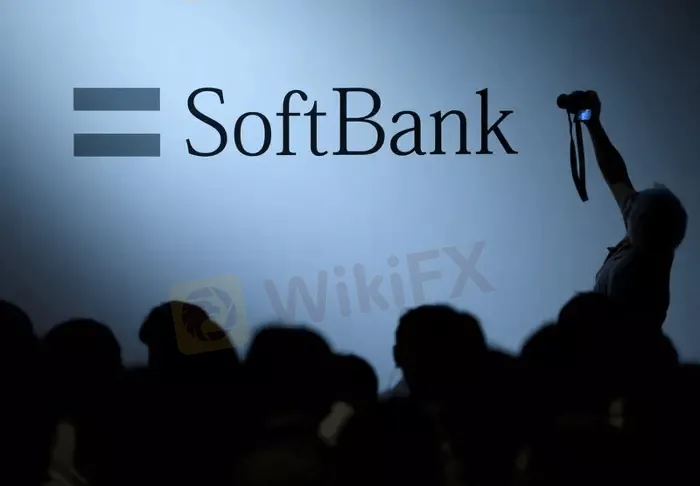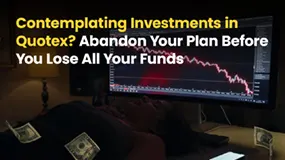简体中文
繁體中文
English
Pусский
日本語
ภาษาไทย
Tiếng Việt
Bahasa Indonesia
Español
हिन्दी
Filippiiniläinen
Français
Deutsch
Português
Türkçe
한국어
العربية
SoftBank posts record $23 billion net loss on Vision Fund pain
Abstract:SoftBank Group Corp on Monday posted a 3.16 trillion yen ($23.37 billion) net loss in the April-June quarter.

SoftBank Group Corp unveiled a $23 billion quarterly net loss on Monday, its biggest ever, as a market sell-off upended tech stocks and shredded valuations at its sprawling Vision Fund unit.
The pain in the April-June quarter comes fresh after the closely watched Vision Fund posted a record $26 billion loss in May, when rising interest rates and political instability disrupted global markets, and could test investor willingness to stomach further big losses.
SoftBank founder and CEO Masayoshi Son has already pledged to tighten investing criteria and preserve cash to ride out the downturn and on Monday he signalled cuts to headcount at the Vision Fund, saying there were no “sacred areas”.
“The world is in great confusion,” Son told a briefing after the release of the results, remarking on the tech sell-off. But he acknowledged the company had invested in more start-ups than it should have and that valuations had been “in a bubble”.
SoftBank also said it had authorised a share repurchase programme worth up to 400 billion yen, something that could assuage investors.
Overall, the sliding portfolio pushed SoftBank to a 3.16 trillion yen ($23.4 billion) net loss in the latest quarter – its largest loss ever. That compared with profit of 761.5 billion yen in the same period a year earlier.
The Vision Fund unit saw a $23.1 billion hit in value.
Listed investments that suffered a fall in value included robotics firm AutoStore Holdings Ltd and artificial intelligence firm SenseTime Group Inc.
SoftBank said it wrote down the value of unlisted assets across its two Vision Funds by 1.14 trillion yen. Analysts have said writedowns of these private assets were unlikely to reflect the extent of current market weakness.
To raise cash, SoftBank has exited companies including ridehailer Uber Technologies and home-selling platform Opendoor Technologies, for a total gain of $5.6 billion.
SoftBank sold Uber at an average share price of $41.47, compared to the Friday closing price of $32.01.
The second Vision Funds stakes in 269 firms were worth $37.2 billion at end-June, compared with an acquisition cost of $48.2 billion.
Plunging initial public offering volumes and market scepticism towards money-losing startups have squeezed an important source of capital for SoftBank, which hopes to list chip designer Arm following the collapse of a sale to Nvidia.
SoftBank hasnt been the only casualty of the tech sell-off.
Hedge fund Tiger Global, which competes with “unicorn hunter” Son on deals, saw its flagship fund fall 50% in the first half of the year after it underestimated the impact of surging inflation on markets.
Berkshire Hathaway booked a $44 billion quarterly loss on its investments and derivatives, with Chief Executive Warren Buffett urging investors to ignore the fluctuations.

Disclaimer:
The views in this article only represent the author's personal views, and do not constitute investment advice on this platform. This platform does not guarantee the accuracy, completeness and timeliness of the information in the article, and will not be liable for any loss caused by the use of or reliance on the information in the article.
Read more

BlackBull: A Closer Look at Its Licenses
When selecting a broker, understanding its regulatory standing is an important part of assessing overall reliability. For traders seeking to protect their capital, ensuring that a platform operates under recognised and stringent oversight can make all the difference. Keep reading to learn more about BlackBull and its licenses.

Dark Side of AETOS: They Don’t Want You to Know
AETOS is an Australia-based broker. All over the internet, you will find positive reviews about this broker, but no one is talking about the risks involved with AETOS. However, we have exposed the hidden risks associated with AETOS

Contemplating Investments in Quotex? Abandon Your Plan Before You Lose All Your Funds
Have you received calls from Quotex executives claiming to offer you returns of over 50% per month? Do you face both deposit and withdrawal issues at this company? Or have you faced a complete scam trading with this forex broker? You're not alone. Here is the exposure story.

15 Brokers FCA Says "Are Operating Illegally" Beware!
If a reputable regulator issues a warning about unlicensed brokers, it's important to take it seriously — whether you're a trader or an investor. Here is a list you can check out- be cautious and avoid getting involved with these scam brokers.
WikiFX Broker
Latest News
SHFE Tin Prices Stabilise in the Night Session After Initial Decline
Major U.S. Banks Plan Stablecoin Launch Amid Crypto Regulations
Lead Prices Remain in the Doldrums Despite Seasonal Expectations
Myanmar Tin Ore Shipments from Wa Region Set to Resume
Different Forex Market Regulators But One Common Goal - Investor Safety
Do You Really Understand Your Trading Costs?
Forex Trading Simulator vs Demo Account: Key Differences
5 Reasons Why Some Traders Choose XChief
Treasury yields rise as Trump denies plans to fire Fed Chair Powell
Harsh Truths About ATC Brokers Every Trader Must Know
Currency Calculator


